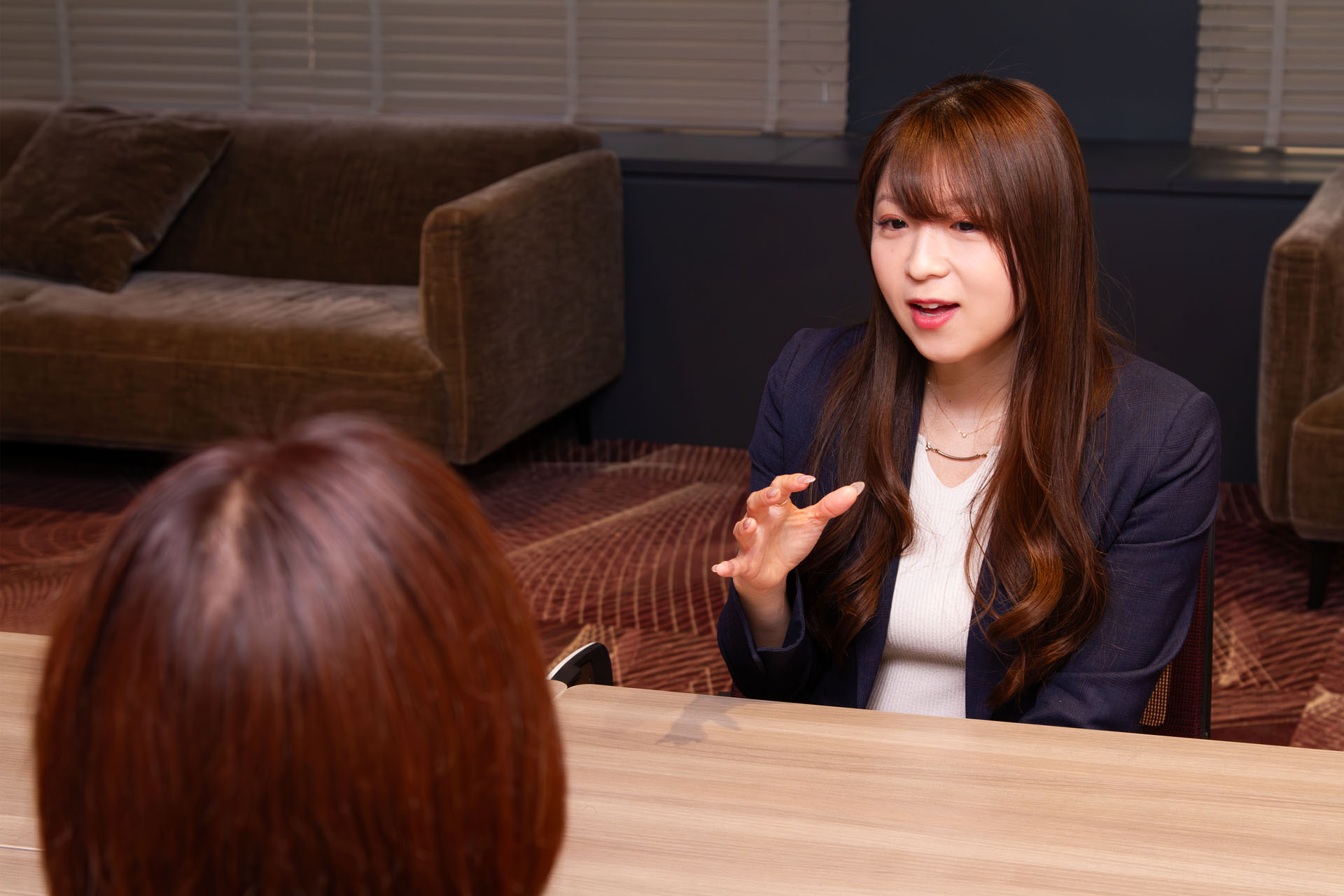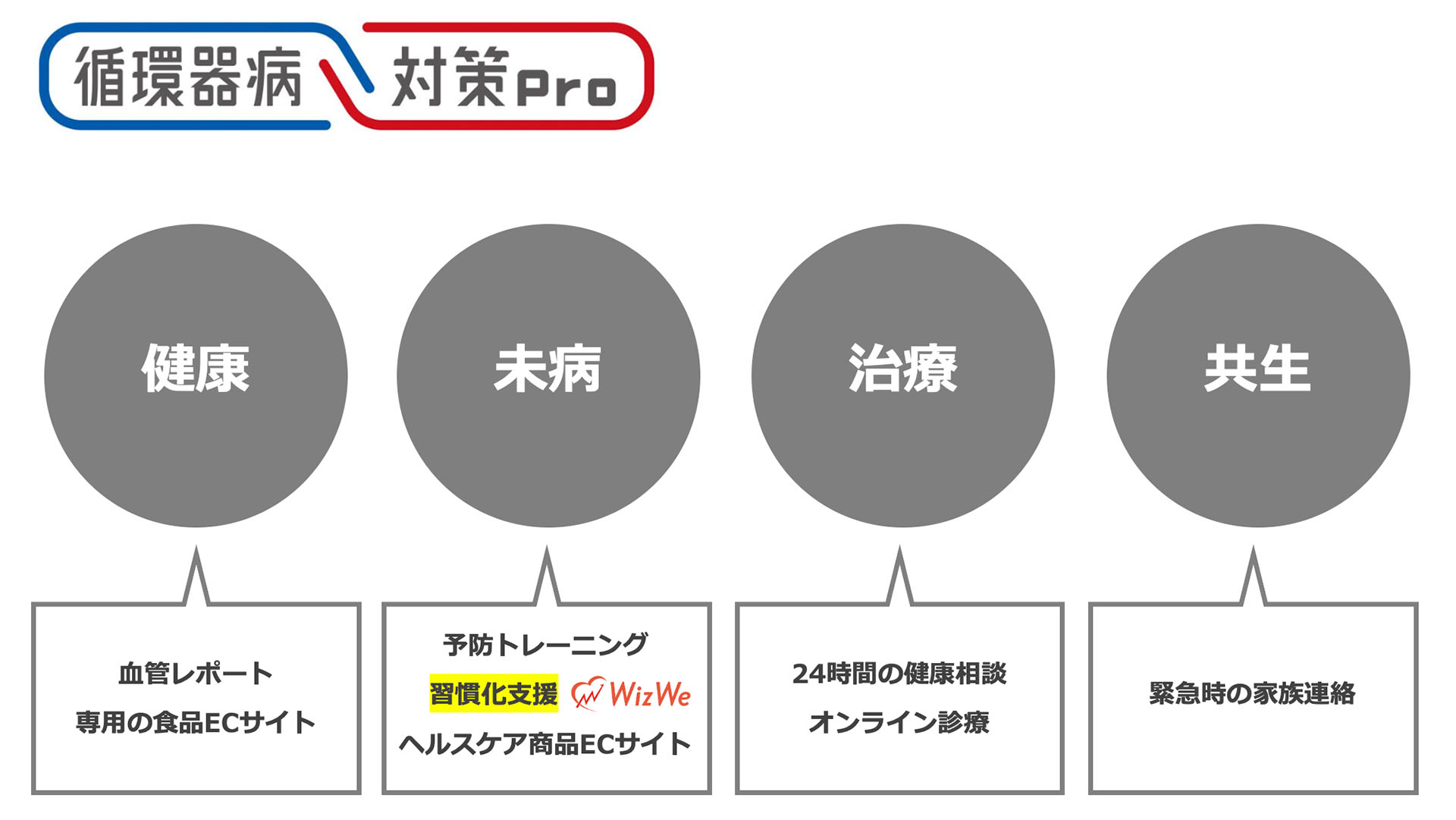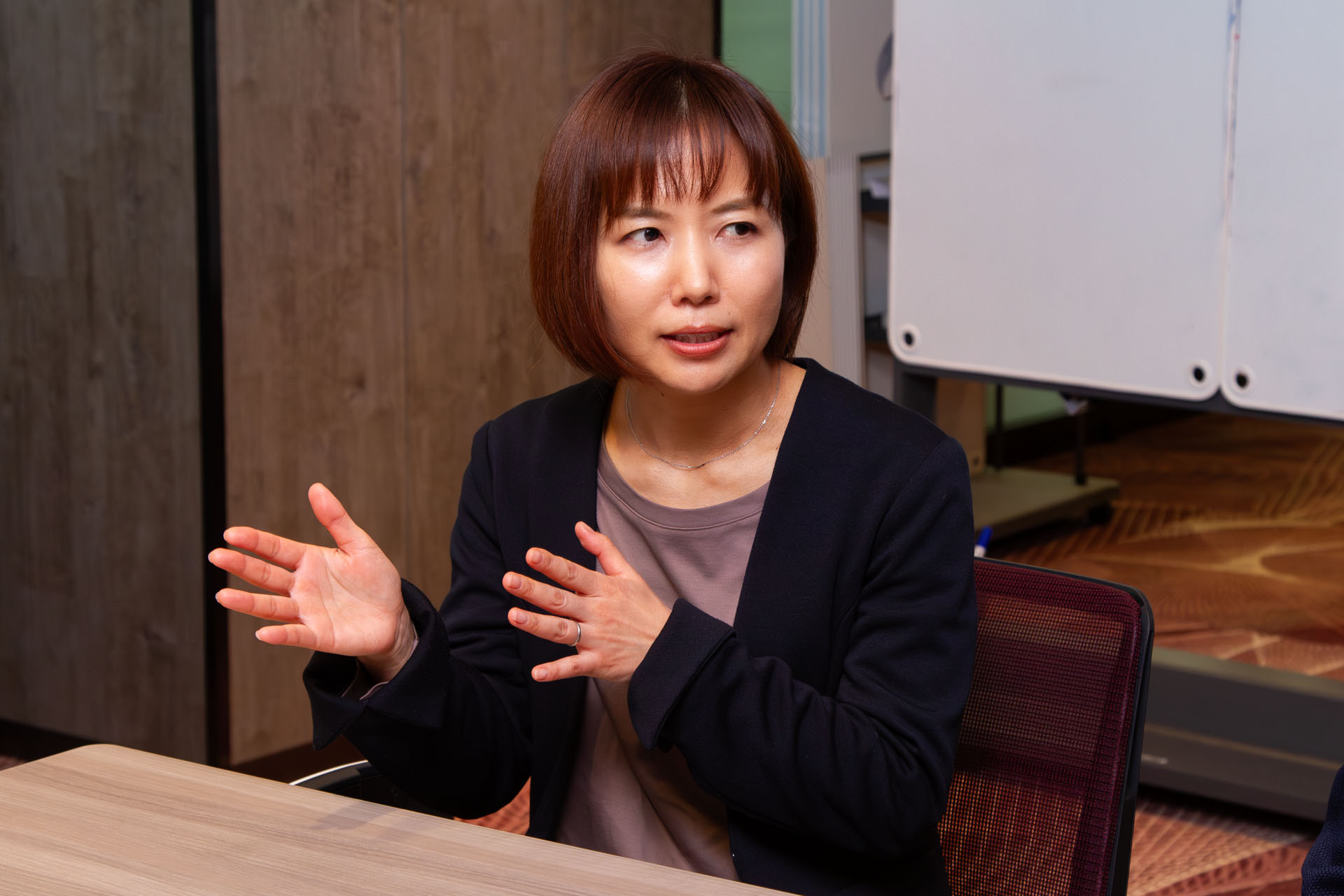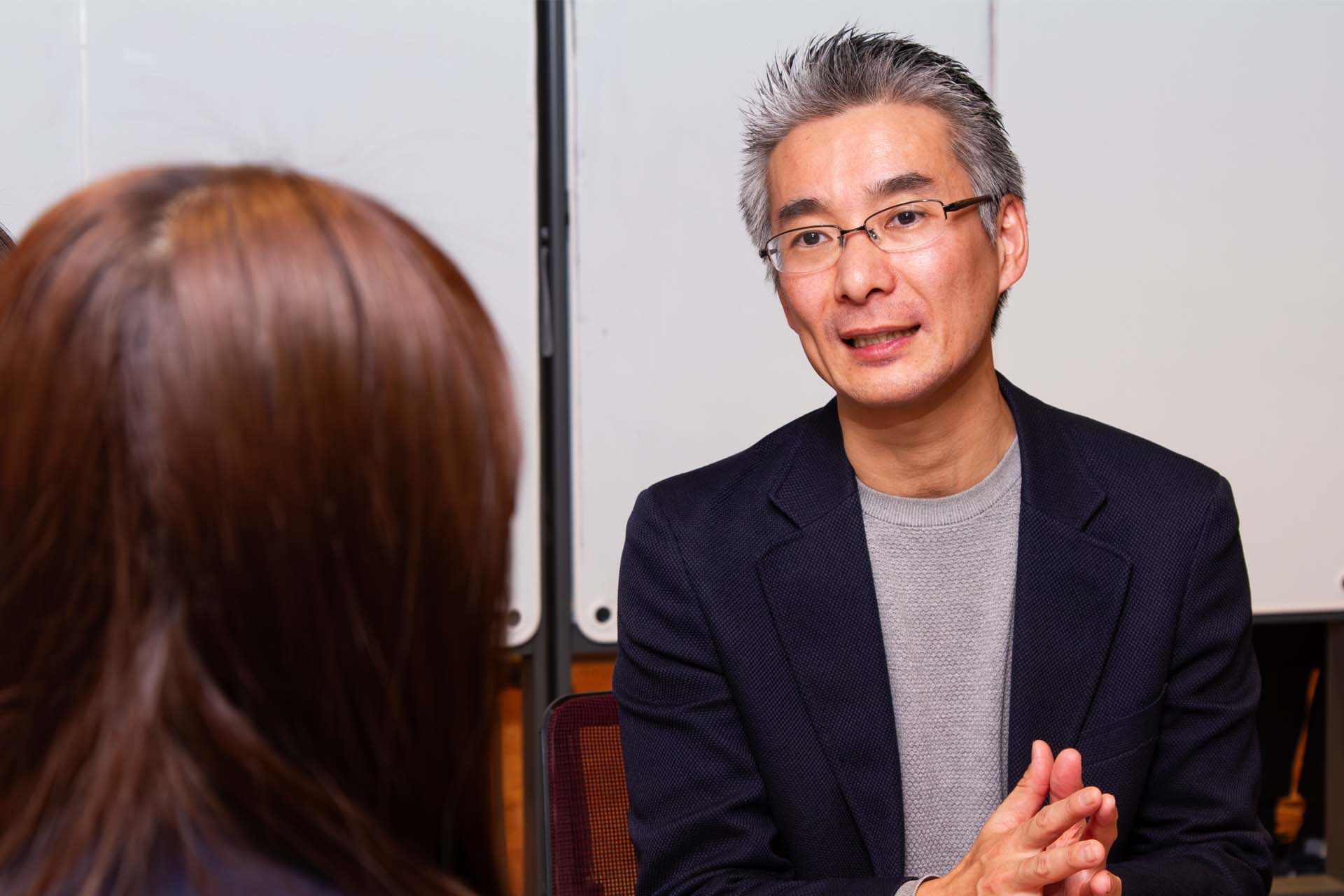Meiji Yasuda’s New Healthcare Collaboration with a Habit Building Service Startup
Meiji Yasuda’s new insurance product for circulatory diseases includes a habit building support service provided by a startup, WizWe. We asked the two companies how this unique collaboration was realized and what they think about their mutual affinity.

Written by the Universe Editorial Team
In January 2025, Meiji Yasuda Insurance Company (Meiji Yasuda) launched a new product for circulatory diseases called Junkankibyo Taisaku Pro (product information only in Japanese) that delivers new value to customers by combining coverage and services tailored to the changes in health conditions starting from the phase of preventing the progression (deterioration) of circulatory diseases. This product includes a supplementary service for habit building support provided by WizWe Corporation (WizWe), a startup that offers a platform to help people continue studying and exercising.
Why does an insurance product include a habit-related service? Why did the life insurer choose WizWe to collaborate with among many other startups? We delved into the process of the new product development and key aspects of the collaboration with Saki Sueyoshi, Deputy Manager, Healthcare Business Planning Office, Corporate Planning Department of Meiji Yasuda; Kohei Moriya, CEO of WizWe; and Chikako Masaki, Director, Solution Sales Department of WizWe.
(The names of departments and roles may have changed after the interview.)
Meiji Yasuda finds affinity with WizWe
──Why did Meiji Yasuda develop the new product Junkankibyo Taisaku Pro?
Sueyoshi: In March 2021, our company concluded a comprehensive partnership agreement and joint research business agreement with the National Cerebral and Cardiovascular Center in Japan to pursue joint research for contributing to combating circulatory diseases.
Circulatory diseases affect approximately 1.4 times as many people as cancer and are the second leading cause of death, following cancer. Despite their severity, public awareness remains relatively low. However, they are preventable and controllable through the improvement of lifestyle and appropriate treatment, so we developed this product as a life insurer that can foster long-lasting relationships with our customers from when they are healthy and not suffering from any diseases with the aim of addressing social issues related to circulatory diseases through our insurance coverage and services that closely support our customers.

Circulatory diseases can be prevented and controlled by improving lifestyle habits such as diet, smoking, and exercise. However, the most difficult part is to continue those habits after changing them.
We thought we could overcome this issue if we work with WizWe and leverage its habit building support service. We also felt that its service might go well with our new product for taking care of circulatory diseases. This is why we approached WizWe to discuss collaboration.


──Why did you decide to collaborate with WizWe while there are other health management service players in the market?
Sueyoshi: It was largely because WizWe was cooperative and earnest in thinking about what was really valuable for the customers. WizWe was not only interested in having us introduce its “Smart Habit” (only in Japanese) to our customers, but instead we leveraged the strengths of both sides and worked together with WizWe to come up with a better service. WizWe was committed to jointly develop the habit building service.
Moriya: From the beginning, Meiji Yasuda deeply understood the value of building habits that combines human support and technology, which is our service. Through our track record of collaborations with various large corporations, we believe that successful collaborations largely depend on how well we understand each others’ capabilities. In that sense, from the conversations with Meiji Yasuda, I felt that the collaboration could work out. We were also very honored and thankful for the offer as Meiji Yasuda is a company committed to delivering value to the customers.

Sueyoshi: We knew WizWe’s business as the company had participated in various pitch contests. On top of this, our CVC fund had also invested in WizWe, allowing us to exchange information with the CVC team and gain a deeper understanding of its business.
Synergy during the development activities
──What kind of process did you follow to develop the product?
Masaki: Our discussions on a possible collaboration began around May 2023. Based on a request from Meiji Yasuda, we first offered its employees a trial of our service. Over the course of a month, they were able to understand what kind of messages are sent to the users and what kind of scenarios are developed to drive habitual engagement.
Following that, we conducted a total of three Proof of Concepts (PoCs) to have a more detailed view on the collaboration. During these PoCs, we focused on how to make it easier for the users to turn behavioral goals suggested by the service into habits, such as limiting alcohol consumption to one to two times per week. We enhanced the accuracy of the scenarios by monitoring test users’ lifestyle logging and identifying which messages resonated with them.

In the final PoC, we set up the product with production-level scenarios and messages. We also verified the reward mechanism that encourages customers to maintain health routines.
──During the development process, were there any moments where you felt you were able to particularly leverage the strengths of both companies?
Masaki: I felt the synergy between Meiji Yasuda’s deep understanding of their customers and our expertise in habit formation. Meiji Yasuda had conducted market research prior to this collaborative service and had a very good grasp of customer information. By building on Meiji Yasuda’s insights into the customers and our expertise in habit formation, I believe we were able to achieve a positive outcome by cooperating to set the target group and create scenarios.
Moriya: Meiji Yasuda’s deep insight into customers and the high quality it aims for were a valuable learning experience for us. Sueyoshi-san gave us feedback regarding every word choice and customer approach with a strong sense of ownership, which naturally raised our company’s quality standards. For us, as a startup, the very fact that we are collaborating with Meiji Yasuda is a huge plus, but the overall improvement in our company’s service quality is also a notable outcome of this collaboration.
Difficulties in the collaboration and keys to overcome them
──Were there any difficulties or challenges you faced while developing the service?
Masaki: Junkankibyo Taisaku Pro has about 70 potential behavioral goals to be suggested to customers. This sheer number of goals was our initial challenge. For our existing Smart Habit service, we have a somewhat structured learning program for users’ goals like TOEIC score improvement, and we have accumulated know-how on when to send notifications to keep users engaged. But here, health goals differ for each customer. Plus, we need to segment and follow up on goals that customers choose from 70 options. Creating this complex design from the ground up was tough. Even if we, the operational side, consider the service specifications efficient, they do not necessarily motivate customers to take action. We considered various viewpoints, including those of our members and Sueyoshi-san, to ensure the service was optimized for customers. Sueyoshi: Dealing with a multitude of goals was certainly challenging. I am incredibly grateful to WizWe for their close communication, including having weekly meetings with me. Also, this new product offers many additional services beyond what WizWe provides. We put a lot of effort into figuring out how to make it easier for customers to choose the services that best suit their needs. ──After going through the challenges, what are the keys for ensuring successful collaboration?
Sueyoshi: I believe there are three points. First, dedication of both sides. I feel it was crucial that WizWe resonated with our ambition to create this service together and that we both tackled this initiative with passion. Second, shared vision. It is important for both sides to have the same vision of delivering value to customers, which should be the primary objective, instead of just considering the collaboration to be the final goal. We do not consider the service launch as the finish line for this project. We want to keep monitoring customer reactions and exploring what kind of services truly contribute to improving their health. Having this shared vision for the future is essential. Third, transparency in schedules. Speed is critical for startups, but we have many departments involved, and it can inevitably take time to make decisions. So, we tried to keep everyone informed of the situation inside the company without holding anything back from the members. We provided frequent updates such as, “We are currently held up here” or “The schedule might be delayed,” and consulted with the stakeholders honestly. Even with these challenges, WizWe continued to be a supportive partner and walked alongside us. I believe this is why we were able to launch the service successfully. Moriya: From our company’s perspective, Meiji Yasuda’s decision-making process was very fast. As Sueyoshi-san’s words “dedication of both sides” show, the process went smoothly because Sueyoshi-san handled Meiji Yasuda’s internal coordination with enthusiasm. I was also grateful that Meiji Yasuda drove the collaboration with a startup-like approach of thinking while running, making improvements while conducting PoCs.

Sueyoshi: Thank you. I had always thought that WizWe’s service was wonderful, so instead of just reporting the PoC results internally, I focused on sharing what future this collaboration could bring to customers. By doing so, I was able to secure internal consensus and smoothly work out the process as more colleagues gradually started to listen to me.
More new collaboration possibilities
──Looking ahead, what kind of collaboration efforts, including Junkankibyo Taisaku Pro, do you envision?
Moriya: Junkankibyo Taisaku Pro has various co-creation partners in addition to WizWe’s habit building support service. We aim to strengthen our ties with these surrounding partner companies and organizations to explore new possibilities.
Since Meiji Yasuda’s sales representatives are the ones who deliver Junkankibyo Taisaku Pro to customers, we want to leverage their feedback to further refine the service and better address customer challenges. Furthermore, through this initiative, we have received collaboration proposals from pharmaceutical and other companies. We are definitely seeing more new collaborative opportunities with Junkankibyo Taisaku Pro as the core.
Masaki: Extending a healthy lifespan and engaging in healthy habits are becoming increasingly crucial for the Japanese population, and it is a pleasure to be involved in this endeavor. To encourage more people to adopt healthy habits, we hope to cooperate with the sales representatives to create an environment where they can offer our services.
Sueyoshi: As the two have both mentioned, we would like to further incorporate customer feedback gathered through Junkankibyo Taisaku Pro to refine our services. In particular, we hope to utilize the LINE messaging app’s chat data from our collaboration with WizWe. While the number of healthcare and wellness services will likely continue to increase, the key is whether users can successfully incorporate them into their routines. In that sense, this initiative is truly meaningful as it strives to address that challenge and help boost the wellness of as many people as possible, and we are committed to further exploring various ways to deliver value.